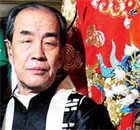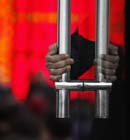Asia-Pacific
US hoping Kim will signal return to talks
By Qin Jize and Tan Yingzi (China Daily)
Updated: 2010-03-24 08:40
 |
Large Medium Small |
DPRK urged to take 'affirmative action' to de-nuclearize peninsula
Washington - The US hopes the leader of the Democratic People's Republic of Korea (DPRK), Kim Jong-il, would indicate that the country was willing to return to the stalled Six-Party Talks during a likely tour to Beijing later this month, a senior official said in Washington.
"I hope when he (Kim) arrives in Beijing he will announce that North Korea is willing to come back to the six-party process and take affirmative action - steps towards de-nuclearization," US Assistant Secretary Philip Crowley said on Monday.
Despite increased media speculation, Beijing has insisted it has no information about Kim's upcoming visit.
| ||||
Japan's Yomiuri Shimbun newspaper cited several US officials as saying that "Washington plans to hold substantial discussions on the North's de-nuclearization at the preliminary talks and to flexibly deal with the North's demand for one-on-one talks within the framework of the preliminary multilateral meeting."
The Korea Herald cited a senior Seoul official as saying that Pyongyang was not responding to Beijing's suggestion, insisting instead on direct talks with the US first.
Pyongyang announced Monday that it will put on trial a US citizen who entered the country illegally, triggering immediate concern in the US.
The move is seen as Pyongyang's means to press Washington to agree to hold talks about a permanent peace pact and a lifting of the UN sanctions before it returns to Six-Party Talks.
International analysts believe that Pyongyang has no intention to cause real serious trouble over the case amid ongoing diplomatic efforts to resume the Six-Party Talks.
However, Washington said additional bilateral talks with Pyongyang should be held on condition that they directly lead to its return to the six-nation negotiating table.
Bruce Klingner, a senior research fellow at the Heritage Foundation, said the Obama administration was skeptical over the DPRK's pledge to de-nuclearize the Korean Peninsula and pessimistic about the success of the Six-Party Talks.
He said the US government was reluctant to return to the Six-Party Talks without some indication that Pyongyang was serious about fulfilling its commitments.
"Even if negotiations were to resume, the real measure for success of any such meeting must be what was accomplished rather than simply whether such meetings occurred," he said.
In another development, the US-based Science Magazine reported that researchers at the Stanford University and a consortium of nonprofit organizations have been working with colleagues from the DPRK's Ministry of Public Health to help set up the nation's first laboratory capable of growing the mycobacterium that causes tuberculosis and detecting drug-resistant strains.
Qin Jize reports from Beijing










